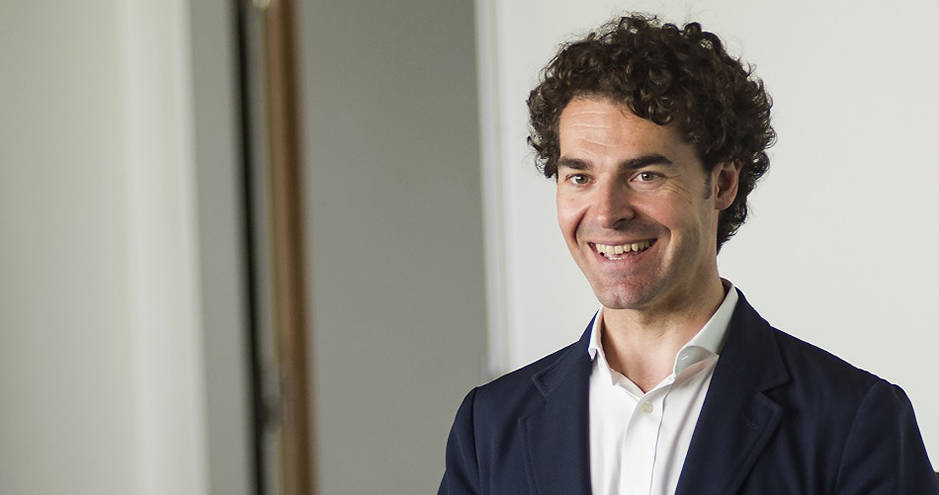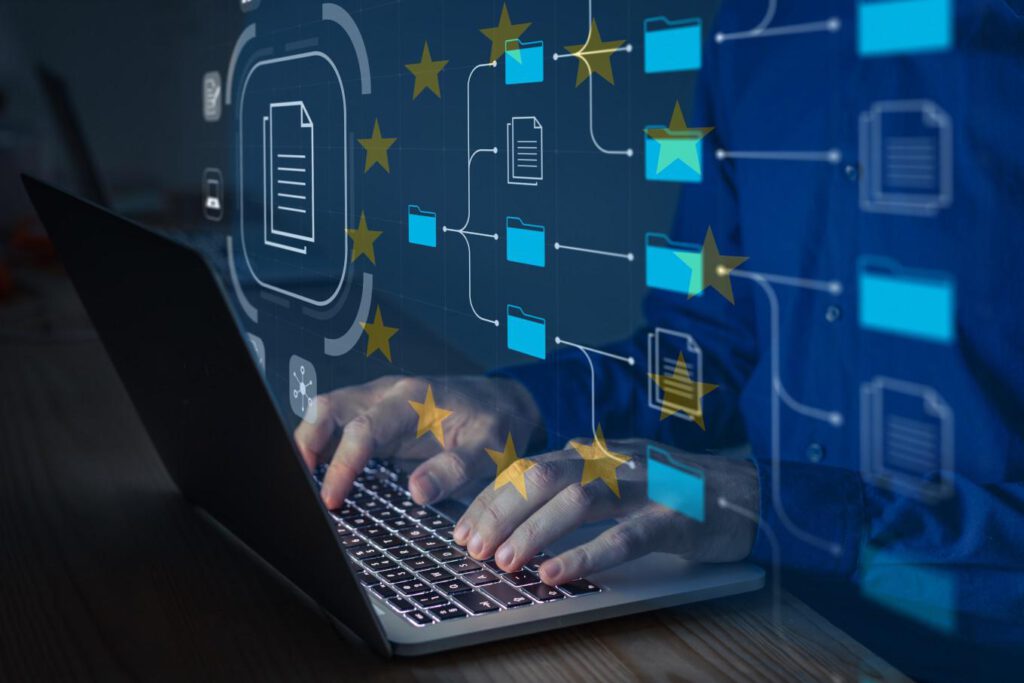In her acceptance speech of Europe Prize awarded by the University of Flensburg, O’Reilly warns of loss of legitimacy in citizens’ eyes if EU’s rule of law standards are not applied transparently.

On 9 November 2021, European Ombudsman Emily O’Reilly attended a ceremony at the University of Flensburg (Germany), to receive its Europe Prize on account of what the award givers described as her “her energetic and courageous commitment to more transparency, effectiveness and integrity of the EU bodies and institutions”.
The event was attended by dignitaries and staff members of the University of Flensburg. Among the speakers were the University’s President prof. Werner Reinhard, author Heribert Prantl, and Irish Ambassador to Germany dr. Nicholas O’Brien.
The Europe Prize amounts to a 10,000 euro cheque which is awarded annually by the University Council, from expense allowance money waived by its members. O’Reilly will be donating the prize money to the NGO Doctors Without Borders.
Plain-speaking acceptance speech
In a wide-ranging acceptance speech, the Ombudsman touched upon the issue of transparency several times.
In particular, the speech centred on the notion of the rule of law and its meaning in the context of the EU, with particular reference to the rule of law conflict in which member state Poland and the EU are currently engaged. The Ombudsman briefly sketched the historical roots of the concept and its dynamic character over time.
In contradistinction to ‘originalist’ seeking to interpret foundational texts in isolation from their context (she mentioned the recently deceased US Supreme Court Justice Scalia as an emphatically negative example here), O’Reilly described the EU treaties as “modern documents [which are] very much alive, alive, alive”. In this light, she described the notion of the rule of law as open to discussion, but at the same time on the basis of an agreement “to play the game, […] in the expectation that others will also agree to play the game”. She described Polish Prime Minister Morawiecki’s recent speech in the European Parliament as “combative”, and concluded that “in the eyes of the institutional EU, Poland is no longer ‘playing the game'”, a reading that she appeared to endorse.
In a remarkably plain-speaking passage worth quoting at length, the Ombudsman then highlighted the inescapable overtones of transparency expectations in the current rule of law crisis:
The Czech writer Milan Kundera wrote “We go through the present blindfolded… Only later, when the blindfold is removed and we examine the past, do we realise what we’ve been through and understand what it means.”
[…]
Mme Von der Leyen’s statement about Poland and the ruling of its constitutional court was fairly unambiguous. This ruling she said ‘calls into question the foundations of the European order’. No one, in other words, is wearing blindfolds. Everything is happening in plain sight.
And while hindsight is indeed denied to practising politicians, in a way [that] is beside the point because what is not denied is political choice and political choice made in full knowledge of the relevant facts.
I would not like to be in the position of having to make such decisions. But bad things start happening when well meaning rhetoric becomes unmoored from any subsequent action that might give real and concrete meaning to it.
When the European Commission says strongly and unambiguously that our Union based on the rule of law is being directly challenged, most citizens would anticipate an equally strong and unambiguous pushback to that threat.
Or at least a transparent and clear articulation of the options and the possible consequences of invoking these options. It is counter-productive, I would suggest, not to be open and frank with citizens.
So let us reflect on transparency and on how it impacts on the Polish situation. I have spoken of the European Commission and most of the public and media focus is on the Commission as they wait for it to act, yet all of which obscures the real decision makers and that is the EU Council – the body that represents the member states and who may ultimately decide what if anything does happen to Poland.
It is enormously difficult to get a clear picture of what exactly is happening within the EU Council on this issue. Records are scarce and those that are published provide little substantive information. For some member states, there may be issues of domestic concern that may impact on how ultimately they want to see Poland treated. It is possible that some of these matters that are discussed behind closed doors at Council meetings will make it out into the open. However, for the most part, the EU citizens will be shut out.
I speak of the rule of law and of the challenge it faces because an Ombudsman is part of that rule of law matrix and the work that I do as European Ombudsman absorbs and deals with some of the complexities and contradictions that I have just outlined.
I am not a judge. My office is not a court and I do not make binding decisions but I attempt to make sure that EU institutions match their rhetoric about the rule of law and democratic values and accountability and transparency to their actions in their dealings with citizens.
The passage may well have been read with disapproval by the Commission and some member states as a damning indictment of their political positioning on this dossier, which has been widely and apprehensively described by many European legal experts as impotent and indecisive.
Rule of law standoff between Poland and the EU
The legal conflict over what the Commission, many member states, and various legal expert bodies in- and outside of the EU perceive as the Polish government’s systematic dismantling of the rule of law within its own legal system ignited soon after this government came into office in 2015,and has led the Council to initiate the so-called article-7 procedure against Poland, which could theoretically (but only theoretically) lead to the member state losing its voting rights in the EU. However, the unfolding of this procedure is of a largely political nature, and has been criticised for its opacity. Agendas of hearings, let alone statements made by member states in these hearings, have not been disclosed, or only after a delay.
The Commission also brought a number of infringement cases before the Court of Justice. The Commission won each of the cases already concluded, with more cases still pending. Yet whereas the judgments are publicly accessible, the judicial process less so. Documents submitted to the court by the litigating parties are not necessarily published, and hearings of the Luxembourg-based court are only open to those capable of attending. This recently prompted a law professor to (unsuccessfully) petition the Court of Justice to be allowed to stream these hearings in a pending high-profile case brought by Poland and Hungary.

Recently, the crisis has also spilled over into more political terrain, when the politically captured Polish Constitutional Tribunal delivered a ruling, requested by Poland’s Prime Minister, that some aspects of the European Treaties were incompatible with Poland’s Constitution. This has put the Council and particularly the Commission in the awkward position of having to determine (as part of a political calculus) how and to what extent they intend to implement existing treaty law and legislation geared towards the protection of judicial independence and other rule of law dimensions across the Union. As others before the Ombudsman have argued, this happens in a secretive manner that is not conducive to inspiring public trust in the process. In one instance, it even led to a court case (pending upon appeal) concerning the Council refusal to disclose a legal advice on a the rule of law conditionality regulation that was adopted earlier this year.
The Ombudsman’s office and transparency
The European Ombudsman frequently deals with EU transparency questions, with inquiries into access to documents policy comprising about a quarter of all complaints she receives. However, up until now the Ombudsman had not addressed the rule of law crisis in an integrative and systemic fashion, although the matter has come up in individual complaints and previous public exchanges. O’Reilly’s speech comes less than a week ahead of a conference, organised by her office, on the future of access to documents.
In her speech, O’Reilly describes the fact that she is a journalist by profession, rather than a lawyer as “an asset”, because it affords her an outsider’s perspective on institution’s reliance on administrative and legal methods designed to deflect responsibility. She has also been described as favouring selective, high-profile interventions, leading to accusations of a politicised discharge of her duties. In her speech, O’Reilly appears to respond to this critique by describing herself as risk-taker who does not shy away from stating the unvarnished facts, even when that might lead her recommendations not to be favoured or adopted. In support, she cited another recently deceased US Supreme Court Justice, Bader Ginsburg, who stated that “a dissent is a marker not to the present but to the future”.
Note: This article has been updated with links to websites providing illustrations of the opacity of the EU’s political process towards the protection of the rule of law.


